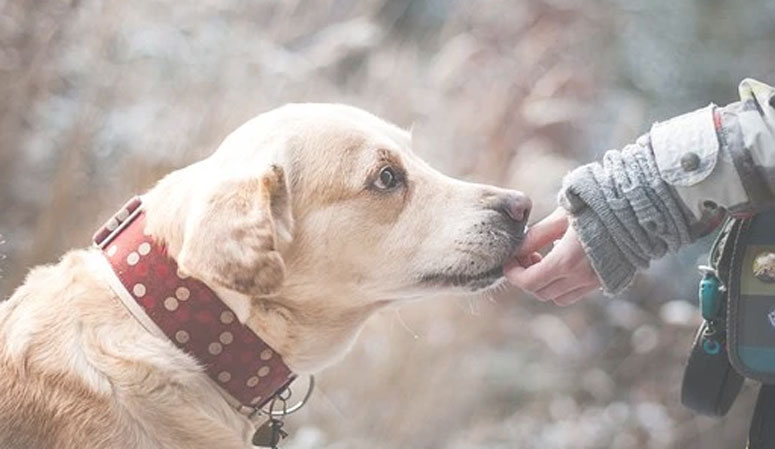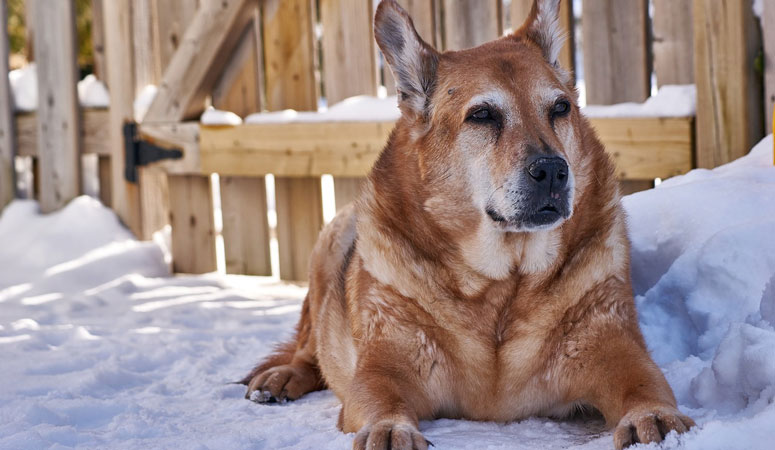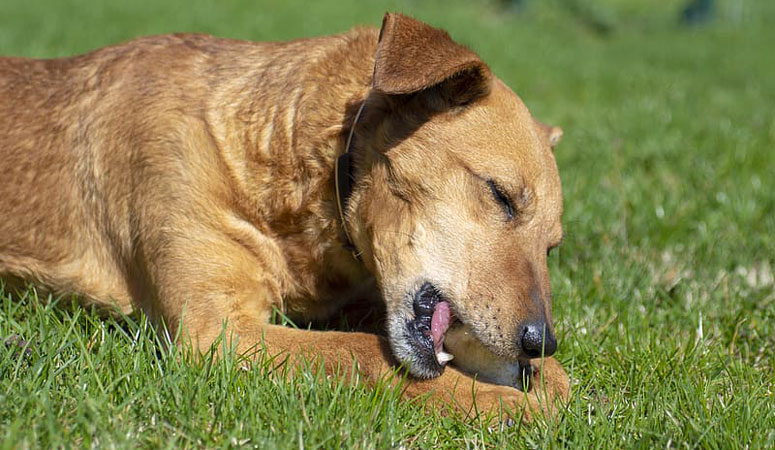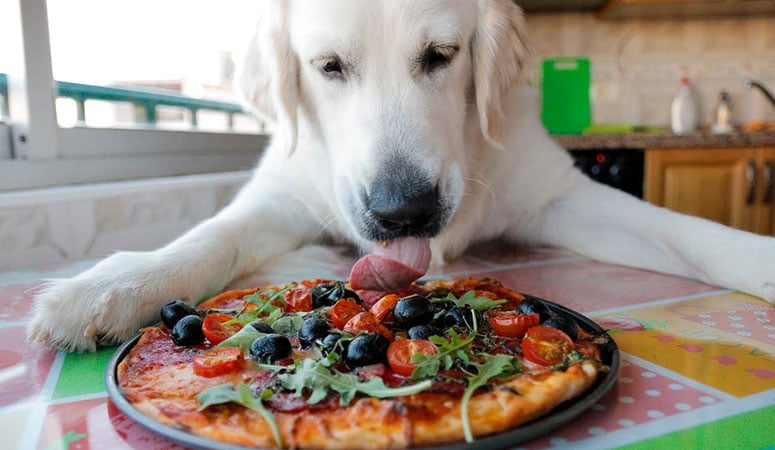What Should We Feed Our Aging Dogs?
As our canine companions get older, their eating habits and dietary needs can change. Generally, aging dogs will move slower, use less energy, and have a slower metabolic rate.
If you don’t adjust the amount of food you are giving them, you might see your older pup starting to add on some extra pounds. In the worst cases, they can become overweight or obese, which causes a lot of problems for aging pooches as it puts more pressure on their joints and cardiovascular system.
Sadly, overweight dogs age tend to age faster than those at their ideal body weight and can even have a reduced life span of up to 2 years.
The main goals when it comes to feeding senior dogs is to maintain their health and optimal body weight, slow or prevent chronic disease and improve the clinical signs of disease that may already be present.

When Are Dogs Considered to Be Seniors?
Dogs age at different rates depending on their breed and body weight. Large and giant breeds age faster than smaller dogs. In general, smaller dogs live to about 15 to 20 years of age, while bigger dogs live to about 12 to 15 years.
As a rule of thumb, dogs are considered older when they’ve reached half of their life expectancy. So, large or giant breeds are considered older at around six years while smaller dogs are considered older at around eight or nine years.
How Often Do We Feed Our Older Pooches?
With a reduced appetite, your older friend may benefit from smaller, more frequent meals rather than sticking to a schedule of 2 meals per day.

What Is the Best Food for Senior Dogs?
If possible, you should try to find a high-quality commercial food that is specifically formulated for senior and geriatric dogs.
To avoid putting extra pressure on your dog’s internal systems, choose food that is enhanced with vitamins, minerals, natural prebiotics, and amino acids; uses premium ingredients that are not genetically modified; and is free from artificial flavors, colors, and preservatives.
Quality senior dog food formulas tend to have:
- lower calories – which will help prevent obesity
- higher-quality protein sources – to help maintain body weight and muscle mass without putting too much pressure on your dog’s kidneys
- higher fiber – to help improve gastrointestinal health
- lower sodium levels to reduce the risk of heart disease
- higher digestibility
- a softer texture and/or formulation to help fight dental disease.

The best formulas also include antioxidants (such as vitamin E and beta-carotene), omega-6 and omega-3 fatty acids, and fructooligosaccharides. All these extra nutrients are a great way of helping to boost your older dog’s immune system and support healthy digestion.
You can also consider adding extra fiber to your senior’s diet like small amounts of fruits and vegetables. Psyllium husk, sliced apple, chopped carrot, steamed fresh green beans, or finely chopped and boiled pumpkin can all help your aging friend with constipation.
Because many older dogs experience arthritis and joint pain, try to find a senior food that contains glucosamine, chondroitin, and/or green-lipped mussel.
Or you can also add these to your dog’s diet as a supplement. But make sure you are using veterinary formulations, not human ones.
If your dog has any specific medical problems like diabetes, cancer, liver disease, heart disease, or kidney failure, you should speak to your veterinarian or a canine nutritionist to help you plan the best diet.
As our dog’s age, they can develop other health-related issues such as cognitive dysfunction, and/or reduced immune system function. You can help ease some of these symptoms with diet and supplements, but again you should seek the advice of your vet before choosing a specific food.

Other Things to Watch out for When Feeding Seniors
Older dog’s struggle to maintain sufficient water balance in their bodies so they tend to drink a lot more water than when they were younger. To help them out, make sure they always have access to fresh water.
Snacks and treats are still important for our senior friends. But look for quality, low-fat, and low-sodium treats. Vegetables such as carrots and apples can make great choices.
Avoid feeding anything to your senior or geriatric dog that is on our list of toxic and dangerous foods (which you can find here: What Food Should We Give Our Dogs).
If your older dog loses interest in dry food, try adding some chicken broth, or a home-made stew of cooked skinless chicken and rice to give them variety. These can make their food smell and taste more appealing, as well as softening the kibble and making it easier to eat.
There are no legal definitions of what dog food manufacturers can package up and label as a ‘senior dog diet’. So, you will need to do a bit of work by researching the ingredients of different formulations to find the ones that include the sort of nutrient profile we have described in this article. And if you still aren’t sure, seek the advice of a qualified vet.

